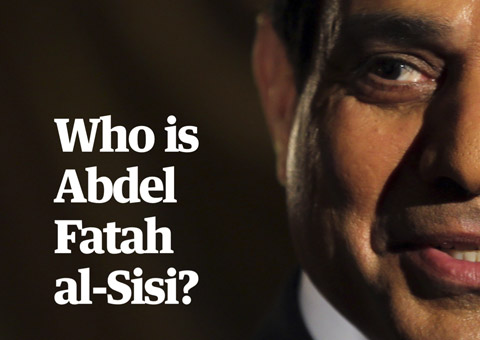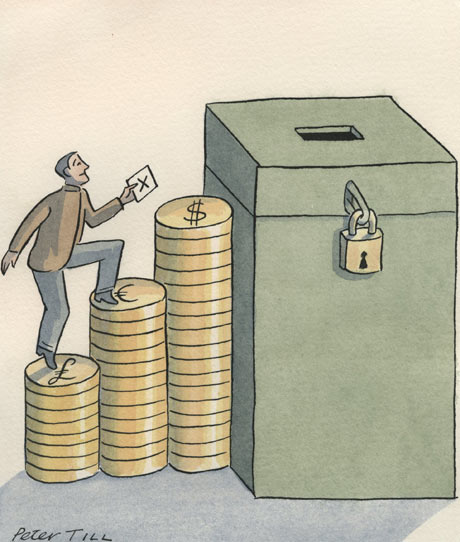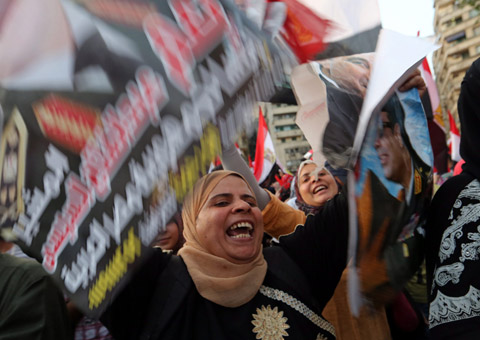Omar Abdel-Rahman, the extremist Muslim cleric known as “the blind sheikh” who was convicted of conspiracy in the 1993 World Trade Center bombing, has died aged 78.
The Egyptian cleric died of natural causes at the Federal Medical Center, Butner, part of a federal prison compound in Butner, North Carolina, according to spokesman Greg Norton. He had been incarcerated at the Federal Correctional Complex, Butner, for nearly 10 years and struggled with diabetes and coronary artery disease, Norton said.
Abdel-Rahman became a notorious figure to western authorities but remained a spiritual leader for radical Muslims long after his 1995 conviction. He and his followers were not directly charged with the 1993 attack, which killed six and injured more than 1,000 others, but were found guilty after a nine-month trial of conspiring with the perpetrators. Abdel-Rahman was also convicted of plotting to kill Egypt’s president at the time and planning further attacks as part of a “war of urban terrorism” in the US.
With his long gray beard and sunglasses, Abdel-Rahman was for decades the face of radical Islam before the September 11 attacks orchestrated by Osama bin Laden. Like the al-Qaida leader, Abdel-Rahmen called for the overthrow of US allies in the Middle East, namely in Egypt and Israel.
The cleric was radicalized in Egypt, where he set himself and his followers against the western-backed government of Anwar Sadat. In association with the fundamentalist Islamic Group, he was accused of issuing a fatwa leading to Sadat’s 1986 assassination. Not long afterward, Abdel-Rahman was imprisoned and, he claimed, tortured by Egyptian authorities.
Following his release he went into self-imposed exile in 1990, entering the US on a tourist visa despite being on a state department list barring his entry because of ties to terror groups. American authorities blamed a computer error for the visa, but in 1991 Abdel-Rahman was given a green card and permanent US resident status. The New York Times reported the CIA had approved the visa application for the cleric, who had supported the anti-Soviet mujahideen in Afghanistan during the 1980s.
In the US, Abdel-Rahman established a following among Muslims in Brooklyn and New Jersey while maintaining influence across the Middle East.
His followers grew more violent and were eventually linked to the 1990 murder of the extremist Rabbi Meir Kahane as well as attacks on western tourists in Egypt.
But by the time US authorities sought to revoke his green card, the plot to bomb the World Trade Center was already under way. Among the conspirators was Ramzi Yousef, nephew of Khalid Sheikh Mohammed, the architect of the 9/11 attacks a decade later.
In 1995, prosecutors accused Abdel-Rahman of plotting a series of assassinations and synchronized bombings, including attacks on the United Nations headquarters, a federal government building in Manhattan as well as tunnels and a bridge linking New York City and New Jersey. At his sentencing, Abdel-Rahman claimed he had committed no crime “except telling people about Islam”.
Despite his incarceration, Abdel-Rahman remained an influence abroad. Osama bin Laden reportedly pledged a jihad to free Abdel-Rahman from prison. Mohamed Morsi, a leader of the Muslim Brotherhood and briefly president of Egypt, also called for his release.










